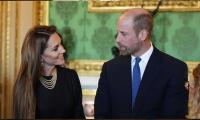FBR initiates legal cases against owners of undeclared assets in UK
KARACHI: The Federal Board of Revenue (FBR) has started legal proceedings against leading businessmen who missed on the opportunity to get their properties in the UK declared with payment of concessional tax rates under amnesty scheme, sources said on Wednesday.
The exchange of information cell of the FBR had issued notices to around 500 individuals owning properties in UK after the amnesty scheme expired on July 31.
“Around 80 percent of them responded to the notices by August 31,” a well-placed source said. “Most of the notice recipients either declared their assets or whitened them under the amnesty scheme.”
The four-month amnesty scheme gave residents one-off tax benefits for repatriating undeclared local liquid assets with a five percent penalty, undeclared foreign liquid assets with a two percent penalty (if repatriated, or a five percent penalty if remaining abroad or in foreign currencies), and undeclared fixed assets – whether held locally or abroad – with a three percent penalty.
FBR collected Rs122 billion in revenue, as around 70,000 declarations of local and foreign assets were made under the scheme.
FBR identified a large number of non-compliant individuals through information obtained from UK’s non-ministerial department Her Majesty’s Revenue and Customs. Tax officials, while confirming the latest action, are tightlipped over questions about identities of non-compliant UK’s assets owners.
Sources, however, said most of the people are from business community and engaged in exports of various goods. The tax authorities started legal proceedings against non-compliant people by initially enforcing provisions related to filing of income tax returns and declaration of assets as envisaged under Income Tax Ordinance, 2001. The sources said the tax authorities might issue assessment orders by creating tax demands if they remain noncompliant.
The FBR will probe into exports receipts of the identified people to determine the transfer of undeclared money.
People with knowledge of the matter said foreign trade is used as an effective tool for huge quantum of money laundering. They said manufactures of various goods, especially textile, pretend importing stuffs to send money abroad and whiten the illegal money through export receipts.
Sources said tax authorities are mulling to take help from the State Bank of Pakistan to reckon foreign trade details.
The last government empowered the FBR to initiate proceedings against illegal assets discovered anytime in the past 70 years. Previously, there was a bar of five years.
In September 2016, Pakistan signed the Convention on Mutual Administrative Assistance in Tax Matters of the Organisation of Economic Cooperation and Development (OECD), which paved the way for the exchange of information related to offshore accounts and immovable properties. Tax officials said the country has been qualified to seek financial information from OECD treaty’s signatories since January. Automatic information exchange was scheduled to begin from the current month.
-
 Prince Harry Hopes To Show Archie, Lilibet Where He 'grew Up'
Prince Harry Hopes To Show Archie, Lilibet Where He 'grew Up' -
 Kristin Davis Dicusses Fate Of Her Sex And The City Character
Kristin Davis Dicusses Fate Of Her Sex And The City Character -
 Zara Larsson Steps Up Criticism Against 'evil' Policies
Zara Larsson Steps Up Criticism Against 'evil' Policies -
 Adam Sandler Jokes About Aging As He Accepts Career Honour
Adam Sandler Jokes About Aging As He Accepts Career Honour -
 Royal Stalker Cases Increase Following Harry, Meghan's Marriage: Report
Royal Stalker Cases Increase Following Harry, Meghan's Marriage: Report -
 Sarah Ferguson Eyes Princess Diana’s Private Letters In Bid To Secure Future
Sarah Ferguson Eyes Princess Diana’s Private Letters In Bid To Secure Future -
 Andrew Plots Secret Sales Of Royal Jewels Amid Royal Lodge Eviction
Andrew Plots Secret Sales Of Royal Jewels Amid Royal Lodge Eviction -
 Abbott Elementary Star Chris Perfetti Hints At What To Expect From Season 5
Abbott Elementary Star Chris Perfetti Hints At What To Expect From Season 5 -
 Prince William Always Ready To Step Up: ‘He’s Barely Able To Contain His Fury When Kate’s Involved’
Prince William Always Ready To Step Up: ‘He’s Barely Able To Contain His Fury When Kate’s Involved’ -
 Florida Woman ‘tricked Innocent Movers Into Helping Her’ $7k Burglary: Report
Florida Woman ‘tricked Innocent Movers Into Helping Her’ $7k Burglary: Report -
 Harry Deserves Top Protection As King Charles’ Son, Prince William’s Brother
Harry Deserves Top Protection As King Charles’ Son, Prince William’s Brother -
 Meghan Markle Receives Key Advice As Experts Warn She’s Doing Too Much
Meghan Markle Receives Key Advice As Experts Warn She’s Doing Too Much -
 Kelly Clarkson Weighs In On Life Without The Father Of Her Children
Kelly Clarkson Weighs In On Life Without The Father Of Her Children -
 Paul Mescal, Gracie Abrams Committed To 'long Distance' Relationship: Source
Paul Mescal, Gracie Abrams Committed To 'long Distance' Relationship: Source -
 Street Fight Turns Bloody As Innocent Bystander Shot In The Face
Street Fight Turns Bloody As Innocent Bystander Shot In The Face -
 Tom Blyth Shares His Two Cents On The Importance Of Rom Coms
Tom Blyth Shares His Two Cents On The Importance Of Rom Coms



